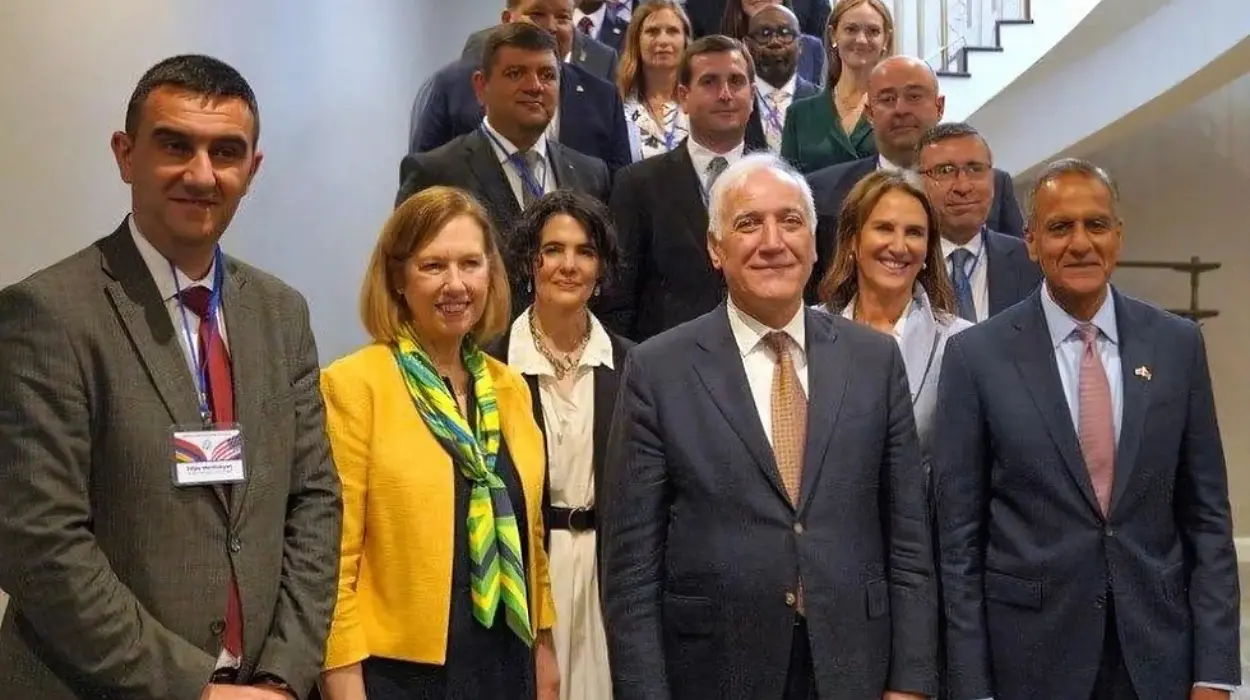The President of the Congress of Local and Regional Authorities of the Council of Europe, Marc Cools, underscored the critical role of strong local governments as the foundation of democracy during the Yerevan Dialogue Forum held in Armenia on May 26-27, 2025. His visit and statements spotlight the urgent need for democratic renewal starting at the local level, with Armenia’s ongoing efforts to reform and decentralize governance receiving renewed international backing.
The Importance of Strong Local Governments in Democracy
Marc Cools emphasized that effective local and regional authorities are essential for ensuring democratic governance across Europe. He stated that local governments must be empowered with autonomy and resources to foster citizen trust and democratic innovation. This message aligns with the Council of Europe’s New Democratic Pact for Europe, which prioritizes local democracy as a cornerstone for broader democratic stability and development.
Key Messages from the Yerevan Forum
- Local democracy is the foundation for national democratic renewal.
- Empowering local governments enhances transparency, accountability, and citizen engagement.
- Democratic reforms must include legal frameworks that guarantee local self-government autonomy.
- International cooperation and support are vital for successful decentralization.
During his visit, Cools met with Armenia’s President, Foreign Minister, Minister of Territorial Administration and Infrastructure, and Yerevan’s Mayor. Discussions focused on Armenia’s draft law on local self-government, strategies to engage citizens more effectively, and ways to restore public trust in democratic institutions.
Armenia’s Local Governance Landscape: Challenges and Progress
Despite constitutional amendments in 2005 aimed at strengthening local self-government, Armenia’s local authorities continue to face significant hurdles that limit their independence and effectiveness.
Limited Autonomy and Financial Dependence
Local governments in Armenia remain largely dependent on central government budget allocations, with limited authority over their own revenues. This financial dependence restricts their ability to address local needs independently and respond swiftly to citizens’ concerns.
Governance and Capacity Issues
- Lack of transparency and accountability at the local level
- Insufficient understanding of the division of powers among local officials
- Inadequate human resources and institutional capacity to manage local affairs effectively
- Low quality of government services and weak regulatory frameworks
Urban Focus: Yerevan’s Role
Yerevan, home to over one-third of Armenia’s population, has made strides in improving governance, including initiatives to reduce corruption such as online real estate tax payments. However, challenges remain in extending these reforms to smaller communities.
Ongoing Reforms and International Support
Since 2009, Armenia’s Ministry of Territorial Administration has been working on merging smaller communities to enhance financial and managerial capacity. Additionally, international programs, including a US$15 million initiative by USAID and Counterpart International, support the development of 43 local communities through capacity building and infrastructure projects.
The Yerevan Dialogue Forum itself gathered over 300 local government representatives to discuss pressing issues like environmental challenges and the adoption of new technologies, fostering a collaborative environment for democratic innovation.
Reactions and International Perspectives
The Congress President’s visit was welcomed as a reaffirmation of Armenia’s commitment to democratic reforms and decentralization. Experts and international organizations highlight that meaningful democratization must be rooted in empowered local governments that are accountable to their citizens, not just dependent on central authorities.
The Council of Europe’s engagement signals ongoing international support for Armenia’s democratic transition and regional stability, emphasizing that local governance reforms are indispensable for sustainable democratic development.
The Road Ahead: Strengthening Local Democracy in Armenia
To realize the vision of strong local governments as a cornerstone of democracy, Armenia faces several critical tasks:
- Legislative reform: Finalizing and implementing laws that guarantee local self-government autonomy and clarify the division of powers.
- Financial decentralization: Increasing local governments’ control over revenues to reduce dependence on central budgets.
- Capacity building: Enhancing training, human resources, and institutional frameworks to improve governance quality and service delivery.
- Citizen engagement: Promoting transparency and participatory democracy to rebuild trust in local institutions.
- International cooperation: Leveraging support from organizations like the Council of Europe and USAID to sustain reforms and share best practices.
The challenges are significant, including centralized control of key sectors such as security and policing, which remain under the Prime Minister’s authority rather than parliamentary oversight. Addressing these systemic issues is crucial to establishing a balanced, accountable democratic system at all levels of government.
Strong local governments are not just administrative units but vital democratic actors that connect citizens to their government. The Congress President’s statements at the Yerevan Forum reinforce that democracy’s future depends on empowering these local institutions with autonomy, resources, and accountability. Armenia’s ongoing reforms, supported by international partners, represent a pivotal step toward achieving this goal and strengthening democracy from the ground up.









